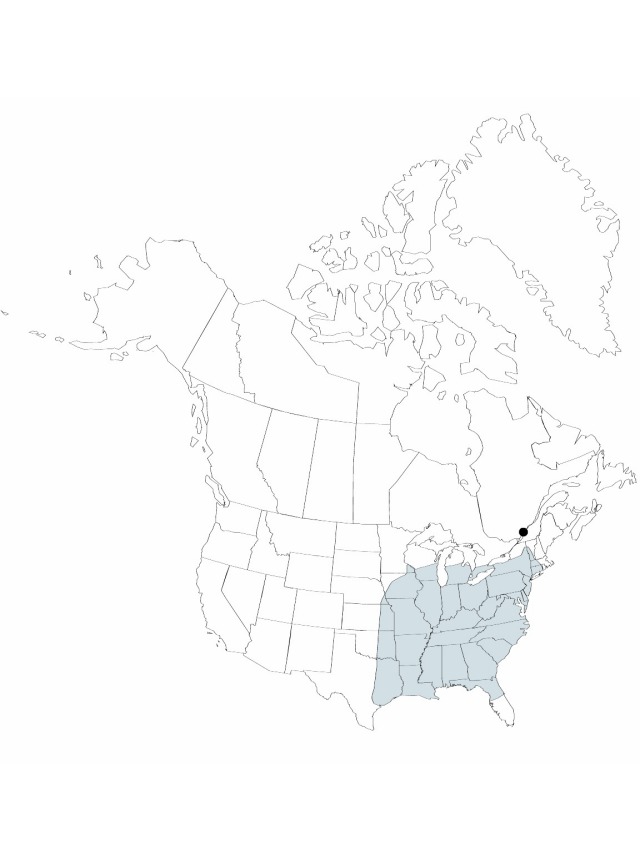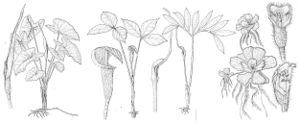Arisaema dracontium
in H. W. Schott and S. L. Endlicher,Meletemata Botanica 17. 1832.
Plants 1.5–9 dm. Roots radiating from apex of corm; corm to 8 cm diam. Leaves usually solitary; petiole medium green or purple-marked; blade pedately divided, leaflets (5–) 7–13 (–21), sessile or petiolulate, elliptic to oblanceolate, to 28 × 10 cm, apex acute to acuminate; central leaflet usually shorter than neighboring ones, these leaflets longest, outer progressively smaller. Inflorescences: s Spathe light green, sometimes marked with purple, convolute, 3–6 (–12) cm; blade usually scarcely distinguished from tube;. sSpadix 6–20 cm (or longer), longer than spathe, apex tapering in long slender appendage to 15 cm. Staminate flowers with 2–4 stamens. Fruits oblong or pear-shaped, 7–13 mm. Seeds 1–2 (–6), 3–5 mm diam. 2n = 28, 56.
Phenology: Flowering late winter (southern part of range)–late spring.
Habitat: Mesic to wet deciduous woods, thickets, and bottoms
Elevation: 30–1200 m
Distribution

Ont., Que., Ala., Ark., Conn., Del., D.C., Fla., Ga., Ill., Ind., Iowa, Kans., Ky., La., Md., Mass., Mich., Minn., Miss., Mo., Nebr., N.J., N.Y., N.C., Ohio, Okla., Pa., S.C., Tenn., Tex., Vt., Va., W.Va., Wis., e Mexico
Discussion
Reports of Arisaema dracontium occurring in New Hampshire and Rhode Island have not been substantiated by specimens. The species has also been reported from Nuevo León and Veracruz, Mexico (E. Matuda 1954); more study is needed to determine if these plants are conspecific. Specimens with a wider spathe blade than is typical in A. dracontium have been collected in Florida and Georgia, and these forms may represent intermediates between A. dracontium and the Mexican species A. macrospathum Bentham, which has an expanded spathe blade. D. G. Huttleston (1953) treated A. macrospathum as a subspecies of A. dracontium in his dissertation, but this change in taxonomic status was never formally published.
Selected References
None.
Lower Taxa
No values specified.
